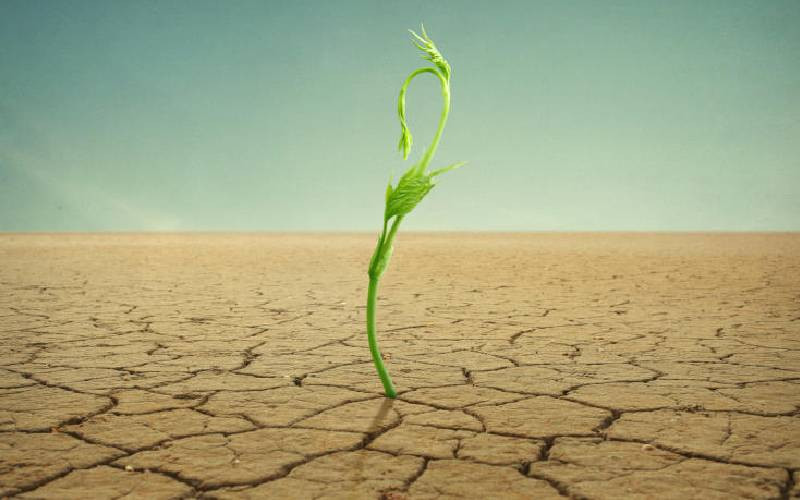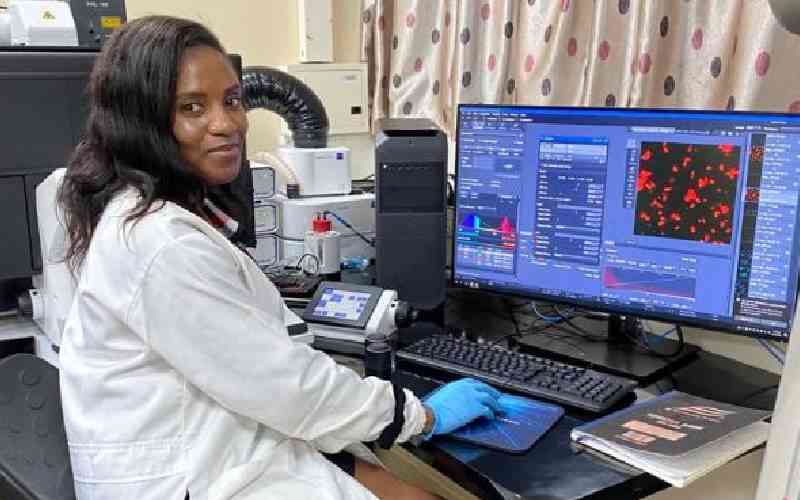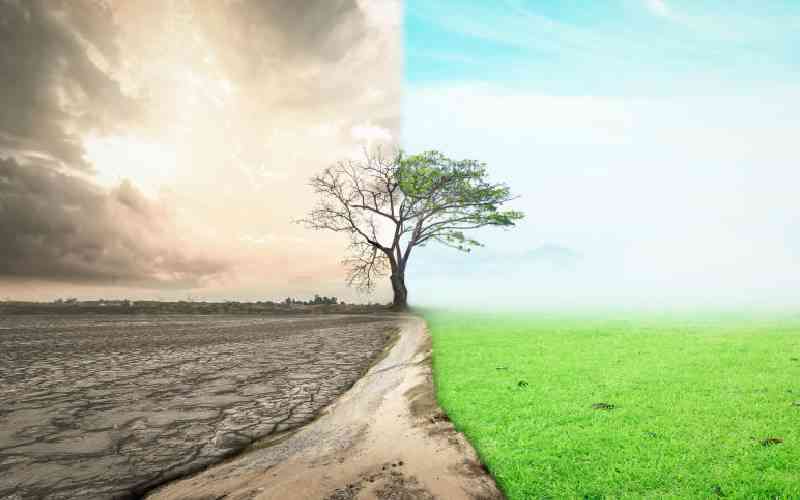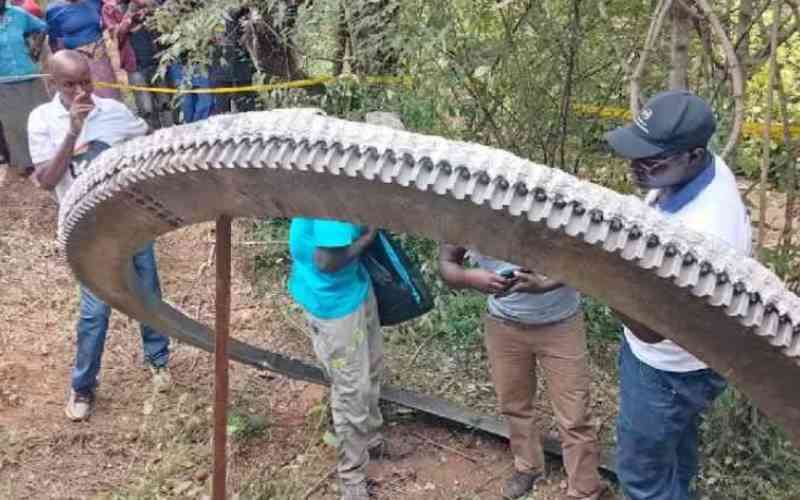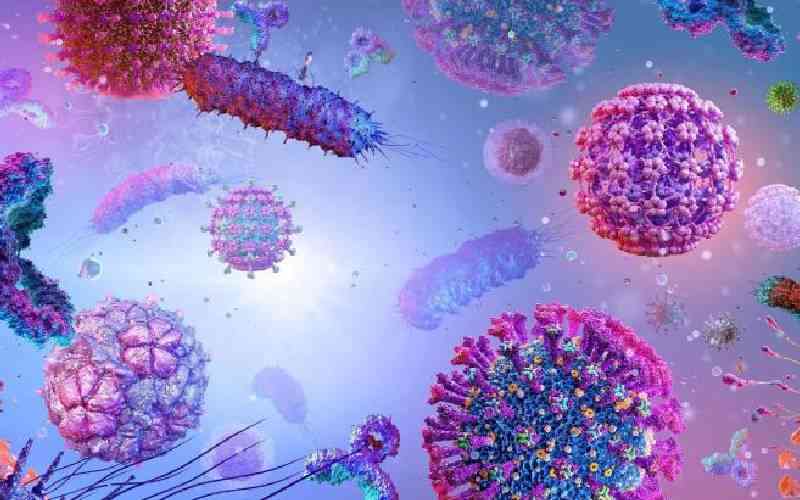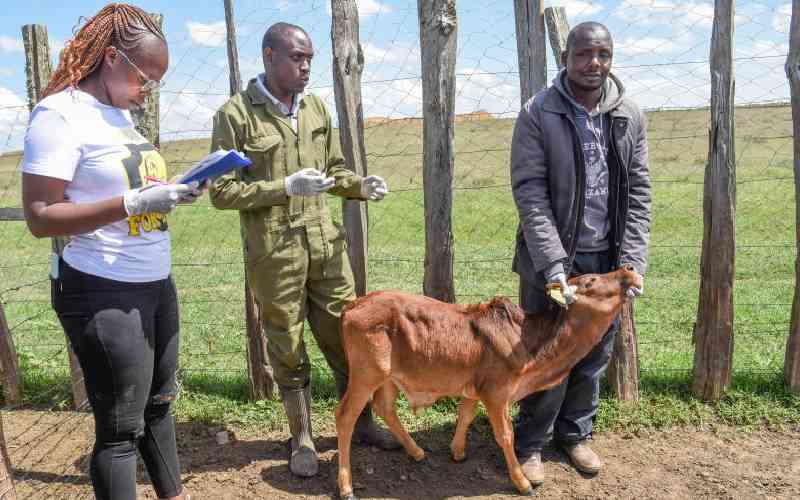
When John Odhiambo, a Lake Victoria fisherman, and his colleagues were attacked by crocodiles, they were forced to abandon the nets in the water.
"We lost the nets but we had to save our lives. Luckily no one was injured," Odhiambo says.
William Oketch, a fisherman at Dunga beach explains that sometimes, fishermen lose their nets when they are swept away by strong currents.
Despite regulations and efforts by authorities and locals, solid waste pollution is evident on the shores of Lake Victoria. Apart from other debris like single-use plastics, it is common to see fishing nets.
While some were 'lost' nets, others are simply abandoned, especially when they get ruined or are raided by animals.
Odhiambo explains that it's common for fishermen to hook nets, setting traps for big catches, but hippos and snakes have been "spoiling the party".
Studies at Kenya Marine and Fisheries Research Institute (KMFRI) reveal abandoned fishing gear is one of the lake's biggest plastic polluters.
The research shows that, annually, more than 46,000 nets are abandoned or dumped inside the Kenyan part of Lake Victoria and over 200,000 nets are dumped in the entire lake, with fishing gear making up about 60 percent of plastic pollution.
- Journey to Surviving Cervical Cancer
- Survivor opens safe house for minors undergoing cancer treatment
- Day out with the trash trackers of Mukuru slums
- Why women aren't lining up for life-saving screening, vaccine
Keep Reading
According to scientists, some nets pile up on beaches, creating a navigational nightmare for boats. Others settle to the bottom, where they damage sensitive ecosystems.
Dr Chrisphine Nyamweya, the assistant director at KMFRI explains that the lost nets go on 'fishing' or trapping rubbish and all sorts of marine life for as long as they are intact before they degrade.
Monofilament nets take up to 600 years before they degrade the nets can fish for generations.
This is what is known as 'ghost fishing', which involves the swimming nets catching fish and diminishing some species as the nets destroy breeding habitats when they settle to the bottom of the lake.
Dr Nyamweya says that 'ghost fishing' is a problem that goes unnoticed since fishermen do not come back and report that they have lost gear or part of nets.
Unlike plastic bags, fishing gear, and other macroplastic waste are so insidious because they are invisible to the naked eye.
In the last 50 years, Lake Victoria produced about 60,000 metric tonnes of tilapia annually, but currently, it barely musters 20,000 tonnes. The bigger Nile perch has been resilient because one adult can produce 17 million eggs compared to tilapia's 300 eggs.
But still, Nile perch could be about 340,000 metric tonnes a decade ago but it has steadily dropped to about 200,000 metric tonnes which KMFRI researchers attribute to ghost fishing, climate change, and unsustainable fishing practice.
"Whenever we access the lake bed and look at the plastics, the fishing gear has been the majority," says Dr Nyamweya. "Fishermen are not aware of the gravity of the problem and how to properly dispose of the nets," he says, adding that there is a need to sensitise fishermen and provide fishing gear attached with GPS for easy tracking.
Dr Nyamweya further explains, "the tracker in the gear will reduce incidences of ghost fishing," adding that one solution for abandoned fishing gear is to mark them with electronic and acoustic tags for easy recovery.
He urges fisher folk to return derelict gear and worn-out nets and traps to the port for recycling, instead of dumping them in the water.
He adds that a way to curb the effects of pollution is by employing nets made of biodegradable material.
Dr Nyamweya says it's time beach management units charged with ensuring compliance with fishing regulations got tough considering that the effects of plastic pollution go beyond Lake Victoria as it is the source of the River Nile via which the microplastics move into the Mediterranean sea.
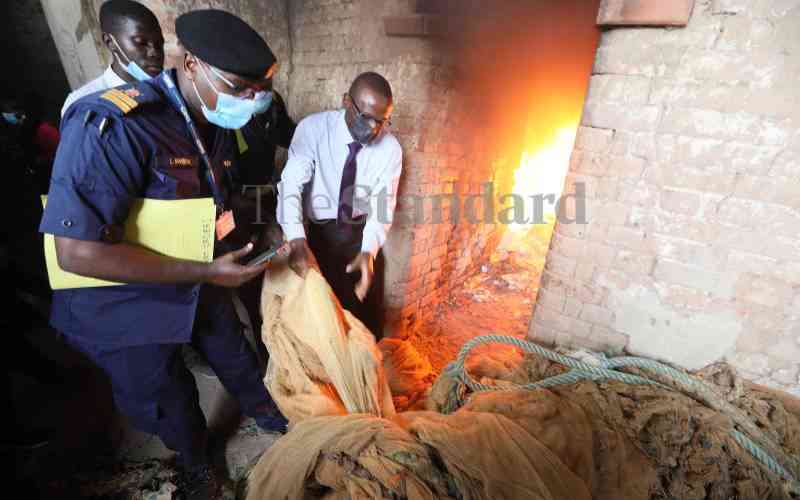
Patrick Odhiambo, an ecologist at Ecology without barriers said microscopic pieces of plastic found in the depths of Lake Victoria can be easily traced in the fish people eat.
"We must implement exciting policies and adopt behaviours in our lives to end plastic pollution," Odhiambo said.
He observed that plastic production has surged in the last 50 years, leading to the widespread use of inexpensive disposable products that are having a devastating effect on the environment, cluttering beaches and choking marine wildlife.
He reiterated that Plastic does not biodegrade. Instead, it breaks down into smaller pieces, and ultimately ends up everywhere, including in the food chain.
"All we know is that we are ingesting it and that it has the potential to cause toxicity. That is definitely a cause for concern," he said.
 The Standard Group Plc is a multi-media organization with investments in media platforms spanning newspaper print
operations, television, radio broadcasting, digital and online services. The Standard Group is recognized as a
leading multi-media house in Kenya with a key influence in matters of national and international interest.
The Standard Group Plc is a multi-media organization with investments in media platforms spanning newspaper print
operations, television, radio broadcasting, digital and online services. The Standard Group is recognized as a
leading multi-media house in Kenya with a key influence in matters of national and international interest.

